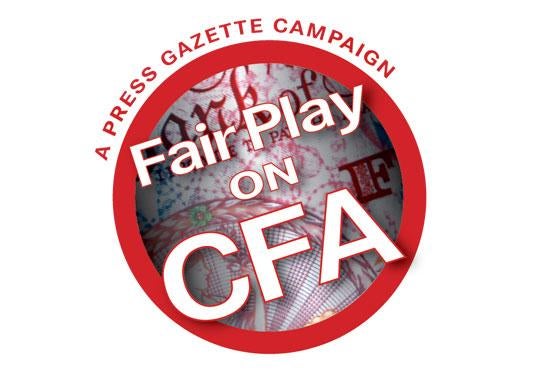
Solicitors who represent claimants in successful defamation and privacy claims against media organisations under no-win, no-fee conditional fee agreements should no longer be able to recover success fees and insurance premiums from the losing defendant, a senior judge said yesterday.
The call came from Lord Justice Jackson as he published the final report in his Review of Costs in Civil Litigation.
It will be welcomed by media organisations, which have protested since the CFA system was introduced that both success fees – which in some cases allow a claimant’s solicitor to charge double his normal fees – and insurance premiums have made a losing defendant’s costs grossly disproportionate to the damages awarded in defamation cases.
Conditional fee agreements (CFAs) were “the major contributor to disproportionate costs in civil litigation in England and Wales,” the report said.
“There are two key drivers of cost under such agreements, being (i) the lawyer’s success fee; and (ii) the after-the-event (‘ATE’) insurance premium that is usually taken out when a CFA is entered into (to cover the claimant against the risk of having to pay the defendant’s costs).
“Both the success fee and the ATE insurance premium are presently recoverable from an unsuccessful defendant.
“Success fees and ATE insurance premiums should cease to be recoverable.
I recommend that success fees and ATE insurance premiums should cease to be recoverable from unsuccessful opponents in civil litigation.
“If this recommendation is implemented, it will lead to significant costs savings, whilst still enabling those who need access to justice to obtain it.
“It will be open to clients to enter into ‘no win, no fee’ (or similar) agreements with their lawyers, but any success fee will be borne by the client, not the opponent.”
The report says that the costs of litigation could be reduced by removing the need for ATE insurance by using a system of “qualified one way costs shifting”, at least in certain classes of litigation in which ATE insurance common taken out.
“By ‘qualified’ one way costs shifting I mean that the claimant will not be required to pay the defendant’s costs if the claim is unsuccessful, but the defendant will be required to pay the claimant’s costs if it is successful,” Lord Justice Jackson writes.
“The qualifications to this are that unreasonable (or otherwise unjustified) party behaviour may lead to a different costs order, and the financial resources available to the parties may justify there being two way costs shifting in particular cases.”
But if it is accepted that CFA success fees and ATE premiums should cease to be recoverable, and qualified one way costs shifting should be introduced, there should be further consultation on which categories of litigation should involve qualified one way costs shifting.
“I can certainly see the benefit of there being qualified one way costs shifting in personal injuries litigation,” Lord Justice Jackson says.
“It seems to me that a person who has a meritorious claim for damages for personal injuries should be able to bring that claim, without being deterred by the risk of adverse costs. The same could be said of clinical negligence, judicial review and defamation claims. There may be other categories of civil litigation where qualified one way costs shifting would be beneficial.”
The results of the overall package of reforms will include claimants have a financial interest in the level of costs being incurred on their behalf, and costs becoming more proportionate because defendants would no longer face the burden of success fees and ATE premiums.
Media organisations have long complained that a problem with the CFA system is that it has allowed solicitors representing claimants on CFAs to rack up costs because their clients have had no reason to ensure that costs were being kept at a reasonable level.
Email pged@pressgazette.co.uk to point out mistakes, provide story tips or send in a letter for publication on our "Letters Page" blog
